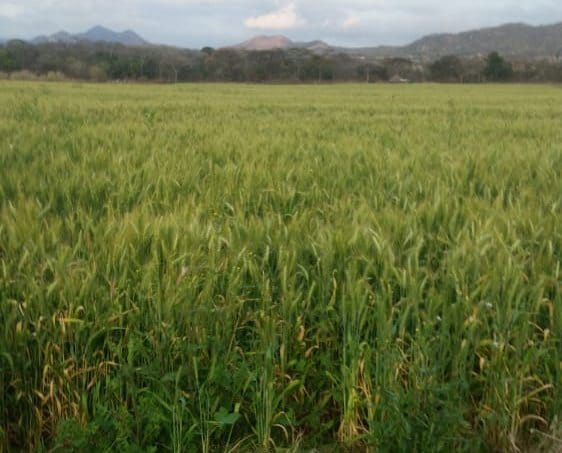Zimbabwe is targeting 400 000 tonnes of wheat this season after the country, which perennially imported the grain due to shortages, registered a 36% output growth in 2021.
The Zimbabwe Wheat Board (ZWB) has since convened a stakeholders meeting to explore linkages across the entire value chain to transform the wheat industry.
The discussions centred on building a robust and efficient ecosystem that is seamless from soil conditioning, planting, harvesting, genetics as well as uninterrupted supply of water and electricity.
“We have come together with the main objective of making agriculture great again in this country for sustainable economic development in the long term,” Given Mesoemvura, the ZWB trust chairperson said.
“The 400 000 tonnes wheat target is realistic and as farmers we are confident of revitalising the wheat industry (back) to where it belongs,” noted Roy Linfield, a Commercial Farmers Union representative.
Prince Kuipa, from the Zimbabwe Farmers Union, said: “The potential is there. We only need to utilise effectively the land and the water bodies that we have in the country, otherwise we are on course to achieve agricultural success.”
He added that farmers were facing financial challenges, a situation that is constraining their ability to buy equipment and inputs due to the high parallel exchange rates.
Agriculture Deputy Minister, Vangelis Haritatos said the government was ready to facilitate enhanced wheat production in the country.
“Agricultural development and food security remain a top priority for the Government because of its huge contribution to rural transformation, food security and economic growth and wheat occupies a central role in stimulating demand for several sectors, hence, the government stands ready to offer the necessary support,” he noted.
Haritatos also applauded farmers for last year’s good wheat yields as the Grain Marketing Board (GMB) recorded 208 343 tonnes of wheat.
“The Government thrust is to see more millers and other private players joining contract farming to ensure 40% of raw materials are achieved by the private sector and they will get 60% from the Grain Marketing Boar,” he said.
This year’s wheat conference was held under the theme “Consolidating the Gains of Quality Products”.
The initiative comes as sweet news to the country at a time when wheat demand has unexpectedly gone up due to the possibility of supply chain constraints as a result of the Russia-Ukraine war.
Both Ukraine and Russia account for nearly 30% of the world’s wheat exports.
As grains continue to see an increase in prices, this state of affairs is also spurring concerns about the impact higher feed costs could have on livestock producers.
Increased wheat production dovetails with the country’s Agricultural Food Systems Transformation Strategy anchored on increased production followed by value addition and beneficiation.








